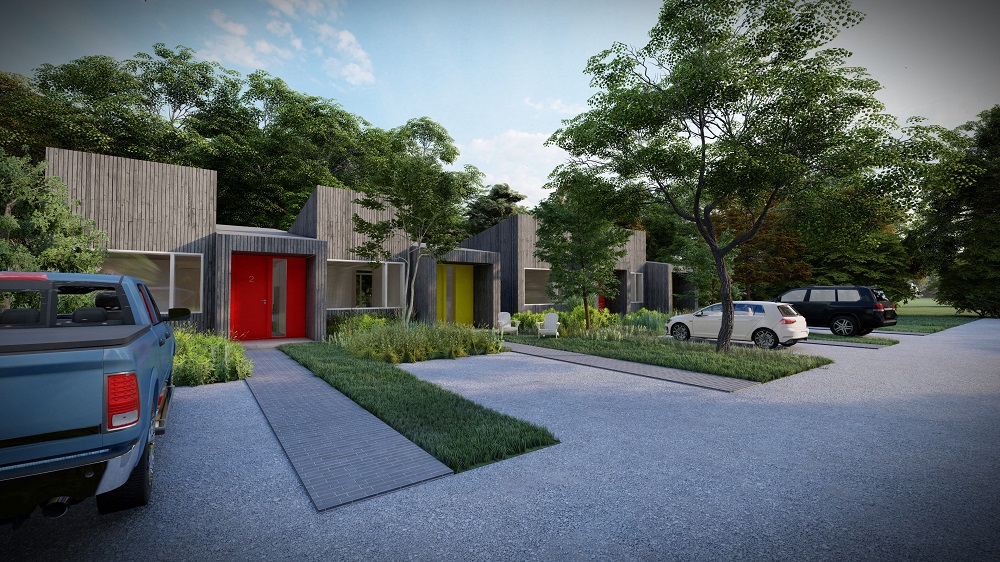A proposed affordable housing development on the shores of the Gull River in Minden continues to be delayed, with the Ministry of Transportation (MTO) yet to sign off on it, despite it being officially on the books for three years, and first discussed in 2018.
Planner Amanda Dougherty of D.M Wills told Minden Hills council at its June 8 meeting, the MTO is now requesting an update to the 2020 traffic impact study it did for the Kawartha Lakes-Haliburton Housing Corporation as the number of units has increased to 35, from 30.
Dougherty said the 2020 study, at 30 dwelling units, determined a right turn taper was not required. However, she said MTO, at the time, said it was needed. “However, the township has only very recently been advised that following further reviews, MTO has now determined (a taper) is no longer required.”
But, she added, “MTO has further advised that an updated traffic impact study is required to issue their permits, given that the number of proposed units has since been increased to 35, or by approximately 17 per cent.”
It was back in September 2020 that a public-private partnership was announced between long-time cottager, Bill Switzer, who donated the land, and the corporation. The 35 units are planned for the west side of Hwy. 35 at County Road 21, between Rotary Park and the Minden Legion, overlooking the Gull River. At the time, then corporation CEO Hope Lee, now retired, said the townhouses – valued at $6.8 million in 2020 – would provide units towards affordable housing targets.
At last week’s meeting, mayor Bob Carter expressed frustration with the delays, saying, “I think there’s been two redesigns of the project, that were both instigated by the MTO. And now the MTO has forced you to change your design ,and wants you to change your study after they caused the issue.”
Coun. Tammy McKelvey asked if a recent federal government announcement to bolster housing stock across the nation could help the local housing project.
Carter replied, “any federal government announcement on housing is always layers upon layers of bureaucracy.”
He said the other thing that could help is the Eastern Ontario Wardens Caucus (EOWC) recent housing initiative, for which they are now negotiating for provincial and federal funding.
The EOWC appeared before County council this spring, about a new intraregional housing initiative, aiming to bring almost 500 affordable rental units to the Highlands by 2031.The ‘Seven in Seven’ program aims to construct 7,000 new affordable rental units across 13 counties in eastern Ontario over the next seven years, with a tab of at least $3.1 billion.
Carter said, “one of the reasons the housing authority and the County will be trying to get this ready is that we want to have shovelready projects. Because the EOWC want to show that whatever the initiatives they are taking could be met with immediate success. Where they would come in and say, ‘hey, you guys are ready to go. Let’s go because we need an early win’ sort of thing. So. the idea is to get this done.” However, he said they need MTO permits first.
Carter added affordable housing is also being impacted by interest rates, the cost of building materials, and a shortage of labour.
“So, we may not even be able to financially make this work. Unfortunately, housing these days, there are no good answers. But we need to get this to the stage where it could get the money.”





